380ML ANCHOR SYSTEM EPOXY ACRYLATE CHEMICAL ANCHOR

X600 380ML
Concrete bonding anchor bolt epoxy
380ml is coaxial cartridge design required special dispensing tool. Also called 400ml or 410ml in the market which can be filled different formula.
X600 injection bonded resin is middle to heavy strength for extensive loads requirements. All of our products had tested and approved in Germany according to EAD 330499-00-0601 which is norm of bonded fasteners for use in concrete. There are also 150ml, 235ml, 345ml and 380ml available in the range.
Chemical fixing system – Acid and alkali-resisting epoxy acrylate chemical anchor
For anchoring structural steel connections at specific environment of acid and alkali. We will suggest to apply X600 Epoxy acrylate with styrene or X2000 without styrene. All of our injectable cartridge mortar tested in European lab to approval the performance on structural connections with post-installed rebar and threaded anchor.
Specification of X600 epoxy acrylate chemical anchor
- Material: Epoxy Acrylate with styrene
- Model Number: X600
- Size: 380ml
- Shelf Life: 18 months
- Mixing Ratio: 10:1
- Mixed Color: Gray
- Standard Package: One cartridge with one mixer
- Other Accessory: Mixer, caulking gun, nylon sleeve, air pump, brush
Epoxy acrylate chemical anchor is high bonding strength adhesive
- Medium heavy load
- Good resistance to acid and alkali
- Versatile range of embedment depths
- Non-flammable and suitable for dry fastening
- Use with 380ml manual gun
- Cartridge reusable by simply exchanging static mixer
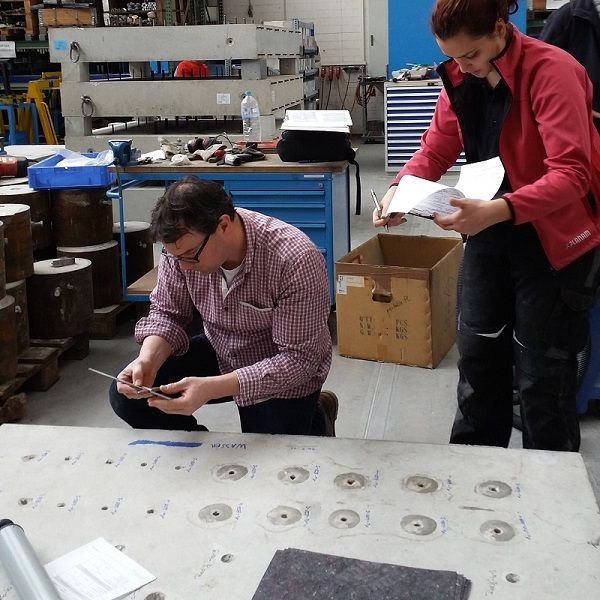
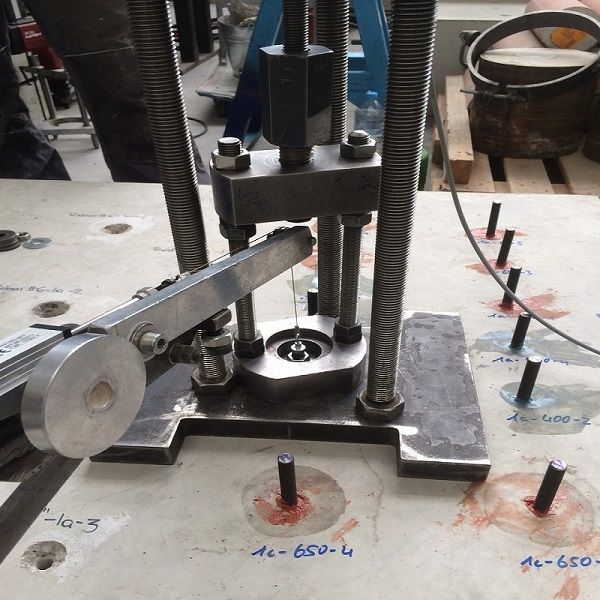
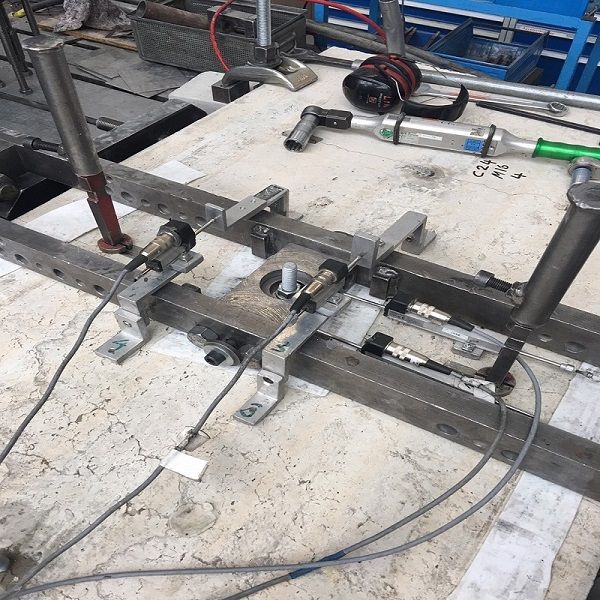
Medium and heavy duty load injection acrylated epoxy adhesive
X600 is formulated from epoxy acrylate resin with medium and heavy loading capacity. 380ml injection epoxy acrylic glue is supplied in a coaxial cartridge which is very easy to install on a caulking gun. The durable resin is great for medium and heavy duty load applications and provides excellent performace in aggressive environments due to its high chemical resistance characteristic. It is suitable for metal constructions, masonry joint reinforcement, structural anchoring, and concrete anchors installation.
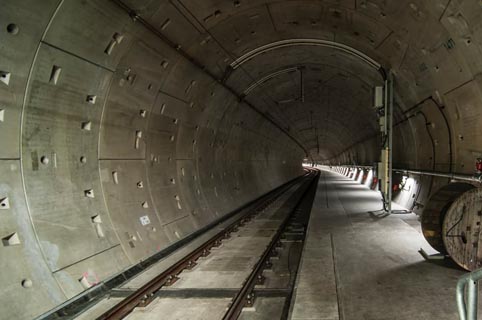
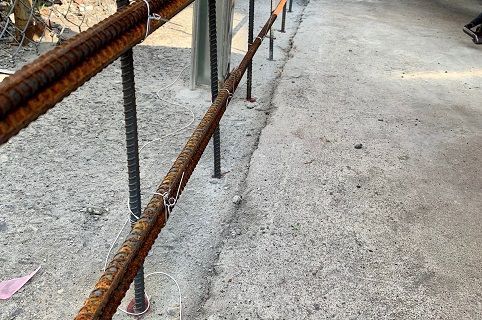
Technical Data
CHART 1. SOLID SUBSTRATE REBAR INSTALLATION DETAILS
| Pressure | Destroy Haul Strength (Kgf/KN) | Safety Haul Strength (Kgf/KN) | Working Standard (mm) | ||||||
| Concrete Strength | 4,000 psi | 280 kg/cm2 | 4,000 psi | 280 kg/cm2 | Hole Diameter | Hole Depth | |||
| Rebar No. | #3 | (Φ10) | 3,622 | 36.6 | 1,207 | 12.2 | 13 | 90 | |
| #4 | (Φ12) | 6,437 | 65.0 | 2,146 | 21.7 | 16 | 125 | ||
| #5 | (Φ16) | 9,737 | 98.4 | 3,246 | 32.8 | 20 | 145 | ||
| #6 | (Φ20) | 13,715 | 138.5 | 4,572 | 46.2 | 25 | 170 | ||
| #7 | (Φ22) | 18,754 | 189.4 | 6,215 | 63.1 | 28 | 200 | ||
| #8 | (Φ25) | 24,137 | 243.8 | 8,046 | 81.3 | 32 | 225 | ||
| #9 | (Φ28) | 27,484 | 277.6 | 9,161 | 92.5 | 37 | 260 | ||
| #10 | (Φ32) | 31,869 | 321.9 | 10,623 | 107.3 | 40 | 290 | ||
| #11 | (Φ36) | 36,000 | 363.6 | 12,000 | 121.2 | 42 | 320 | ||
| Remarks: | 1. Concrete Strength fc’: 280kg/cm2 (4,000 psi) 2. Rebar Strength: #3~#5 fy: 2,800 kgf/cm2, #6~#11 fy= 4,200 kgf/cm2 |
||||||||
CHART 2. CURING TIME TABLE
| Temperature (°C) | Gelling | Full Curing |
| 5~9 | 2 hr. | 90 hr. |
| 10~14 | 90 min. | 64 hr. |
| 15~19 | 45 min. | 28 hr. |
| 20~29 | 30 min. | 18 hr. |
| 30~39 | 20 min. | 7 hr. |
| 40 | 12 min. | 5 hr. |
| Please make pull out test over 24 hours after full cured. | ||
CHART 3. FIXING CONSUMPTION PER CARTRIDGE
| Anchor Size | Hole Diameter (mm) |
Hole Depth (mm) |
Number of Fixings |
| 400ml | |||
| M8 | 10 | 80 | 80 |
| M10 | 13 | 90 | 42 |
| M12 | 16 | 120 | 21 |
| M16 | 20 | 145 | 11 |
| M20 | 25 | 170 | 6 |
| M24 | 28 | 210 | 4 |
| M30 | 35 | 270 | 2 |
| M36 | 40 | 330 | 1 |
| Note: Based on continuous installation without interruptions or nozzle changes. Provided as a guide and will vary with temperature. | |||
How to install chemical anchor?
1. Drill the specific hole size and depth. 2. Clean dust with brush and air blow pump. 3. Press out unmixed resin which can’t be used. 4. Inject mixed resin into drilled hole and fill from the bottom. 5. Insert rebar/threaded rod/steel strip. Curing time refer to TDS. Don’t touch until full curing. The installation process will affect the bonding performance of chemical anchors.

